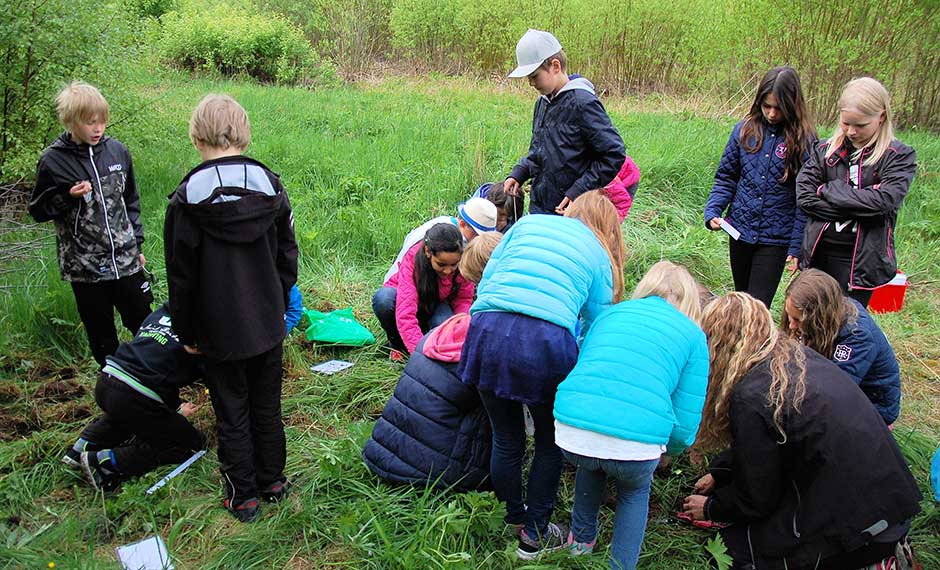Last year, Swedish school pupils helped scientists to bury over three thousand tea bags in the countryside. The Tea Bag Experiment is a mass experiment to investigate soil decomposition rates in different parts of the country and how the process is being affected by climate change. The results have now been published and show that the first phase of decomposition is particularly affected by a warmer climate.

“The Tea Bag Experiment confirms how important the climate is for decomposition and shows this more clearly than in most other scientific studies that have been undertaken to date,” said Judith Sarneel, a scientist at Umeå University, who led the Tea Bag Experiment.
In the experiment, pupils helped researchers to study the decomposition of plant material in soil by burying tea bags, half of them consisting of green tea and half of rooibos (red) tea and then digging them up again after three months. The pupils weighed the tea bags before and after they had been in the ground. In this way, they could determine how much of the tea had broken down. The experiment was coordinated by the Swedish non-profit association VA (Public & Science) and is part of an international project that has been carried out in many different countries.
Part of a world map
The results show that both green tea and red tea breaks down more quickly in southern, warmer climates. Decomposition is slower in the northern, colder climates. The experiment also shows that the first phase of decomposition is particularly affected by a warmer climate. This is visible with the red tea, which breaks down slowly and was still in its first decomposition phase at the end of the three months. The total amount of plant material that was broken down was not affected to any great extent by the climate and temperature, as demonstrated by the green tea, which had almost completely decomposed everywhere.
“The comparison undertaken between the decomposition rate and the total amount of plant material that was broken down is unique to the Tea Bag Experiment and is something we will investigate further,” said Judith Sarneel.
The results of Swedish Tea Bag Experiment will be included in a world map of soil decomposition, called the Global Tea Bag Index. The world map is expected to be complete in 2019.
Researchers’ Night – a European science festival
The Tea Bag Experiment was run as part of Researchers’ Night, a science festival that is held annually in cities across Europe on the last Friday of September.
“The mass experiment gives children and young people the chance to try out real research in collaboration with scientists. Teachers can use it to explain what science and scientific methods are in their lessons. And for scientists, it is an excellent opportunity to collate large amounts of data,” said Lotta Tomasson, Public Engagement Manager at VA.
The Tea Bag Experiment was designed in collaboration with researchers at Umeå University, the University of Utrecht in the Netherlands and Austrian Agency for Health and Food Safety. The experiment was coordinated in Sweden by VA, with financial support from the Swedish Research Council and the research council Formas.
On Tuesday 3 May from 9:00 to 9:30 CET, Judith Sarneel chatted on Facebook with the participating school classes about the results of the experiment.
